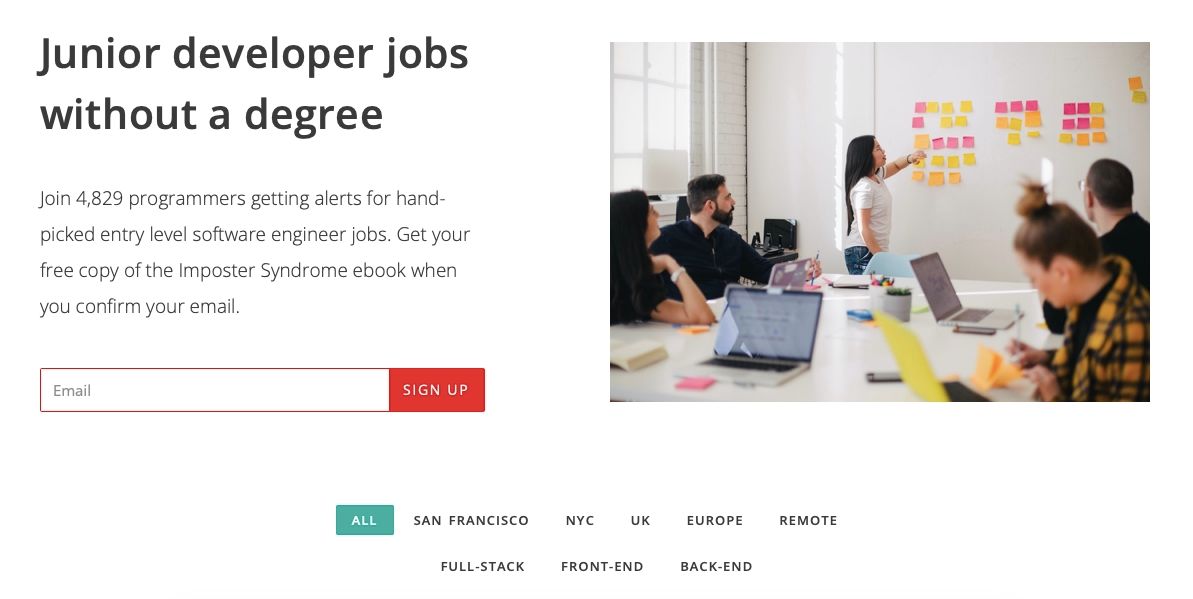Chris Tung is a self-taught programmer with a BA in English. He was able to learn coding and sell a Software as a Service (SaaS) for 5 figures. We go over his tips for becoming a self-taught programmer, making a SaaS that's capable of being sold and lots more.
Hey, so can you introduce yourself?
I’m Chris, and by day, I am a Marketing Manager at Google. By night, I am the founder of Compound Choice which is my umbrella company for all my SaaS products. The Compound Choice portfolio includes Reporty, a Shopify x Slack bot that was MicroAcquired for five-figures, and my current focus, Coffee Chats, which is an all-in-one website, scheduling, and payments platform that helps coaches and mentors turn their expertise into income.
Before Google and Compound Choice, I was in marketing and strategy roles at startups most notably Quidsi and ComiXology which were both acquired by Amazon. I received my BA in English with minors in Asian American Studies and Economics from UC Davis in 2011, and I’m based out of the SF Bay Area (shout out to Marin!) where I live with my wife and son.

How did you learn coding?
My intro to front-end web development (HTML/CSS) was my blog and Neopets, but things really took off in 2015 when I decided to find a way to get more career advice in the world, and a few resources were hugely helpful:
- Ruby on Rails Tutorial by Michael Hartl: This was the single most important book I used to learn how to program as all of my projects are written in Ruby on Rails. Where I struggled with in Community College was that class was so theoretical, but Hartl’s book was very practical and tactical. You could literally go from no understanding of Ruby on Rails to a functioning app in just a few classes.
- Stephen Grider @ Udemy: His classes were always approachable, affordable, and he structured them in such a way that no one class was longer than 20 minutes so you felt like you made real progress after each class.
By reading and practicing the tutorials in Hartl’s book and taking a few Grider classes, I felt like I had a decent enough grasp to start turning some ideas into apps. And through the act of throwing ideas at the wall, figuring out how to unblock myself via Google and StackOverflow, overtime I become a more competent software engineer.
How did you make a SaaS business?
A lot of my full-time job experience was ecommerce startups: Quidsi, Bonobos, and ComiXology were all ecommerce businesses. In 2017, I joined a direct-to-consumer hardware startup called Depict to lead their customer acquisition, and we used Shopify as our site and ecommerce platform. In this role, I needed a way to get new Shopify order details in Slack because it was a way to show the team the progress we were making.
Unfortunately, none of the existing Shopify x Slack solutions had all the features I needed. So, when the company was quiet over the Christmas period in 2018, I decided to spend a few days making the Shopify x Slack app I wish existed.
This was the first app I built entirely on my own, and when it was ready, I shared Reporty on Reddit and got 1 user. I immediately looked at the logs and found a breaking bug in the install process that prevented that user from even using the product. Not a great start.
Thankfully, that user was responsive over email, and I fixed the bug. And, through the constant cycle of sharing the product on Reddit and Indiehackers, talking with customers, and making bug fixes/feature requests, Reporty slowly grew from to a little over $3K in ARR. It wasn’t enough to do full-time, but for someone who had thought programming wasn’t for him, it was a huge milestone.
What was it like selling your business on MicroAcquire?
Before building Reporty, I had built another SaaS with a co-founder called Threadbase.io, which was a way to make your own Reddit-style website without writing any code. After getting Threadbase to profitability, we decided to sell the business using Flippa, which wasn’t great because Flippa took a decent cut of the profits.
In 2020, a global pandemic hit, people were getting laid off, and I was spending more time on Coffee Chats to help people launch their own mentoring websites to get more mentorship into the world. And with Coffee Chats taking up more of my time, I decided to see if anyone would be interested in acquiring Reporty. Around that time, I heard of MicroAcquire and gave it a look.
I was amazed at how easy it was to get my listing live and the quality of interested buyers. And, through a series of chats with a bunch of potential buyers, I eventually found someone who was the right mix of engineer and founder who understood what Reporty could be. We chatted through the details, and the rest is history!
Do you have tips for people who want to learn to code without doing a degree?
First, change your mindset about coding. This isn’t something that only a small subset of people can do. Anyone can get started, and I hope my story is proof of that.
Second, start small. If you’ve never been to the gym, no one expects you to be able to bench press 500 lbs. Similarly, if you’ve never coded before, you shouldn’t expect that you can make the Uber app from scratch. Instead, start with a small component or custom change to something you’re already using.
For me, that was learning some HTML to make a background color change to my blog. From there, I wanted to learn how to add new modules to the page, and little by little, I went from no experience to making my own custom website and having a decent grasp of HTML/CSS. It’s this act of little wins that will start your coding journey and over time it builds momentum for you to become a coder yourself.
Then, when you’re ready to make your own app from start to finish, I would try out the Ruby on Rails Tutorial by Michael Hartl. That tutorial will teach you everything you need to build a simple create, read, update, and destroy app. And once you have a good understanding of what’s going on, build a product for a problem you know well. Then you know you’ll always have one customer. And then, as you build your product more and more, you’ll look back and see how far you’ve come.
What are your career goals for the future?
I’d like to find a way to 1) help as many people as possible with their career journeys and 2) build a sustainable, scalable SaaS business. Right now, those two goals are mutually aligned as I build Coffee Chats.
It’s been amazing to see Coffee Chats grow from a single website that allowed people to book time only with me to a no-code platform that has helped coaches and mentors create their own websites, host over 1,000 chats, and pay out over $3,000 for those that charge for chats. It’s been a great journey so far, and if you’d like to create a free website with Coffee Chats, you can at https://trycoffeechats.com/.
Beyond that, my northstar is just about being helpful to others, and whether that is managing a growing team at my full-time job, building Coffee Chats, or learning new things to build something new (I’ve really wanted to learn more React), as long as it’s in service of trying to help others I know I’ll continue to enjoy the journey.
If you’d like to follow my journey, feel free to add me on LinkedIn and follow me on Twitter.
Check out the guide to Tesla Software Engineer salaries and Uber Software Engineer salaries



